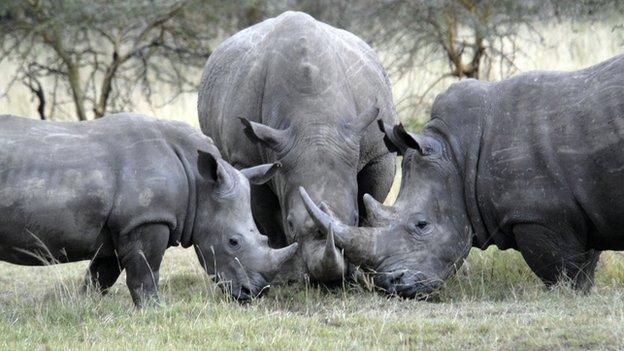South Africa rhino poaching levels in first decline since 2007
- Published
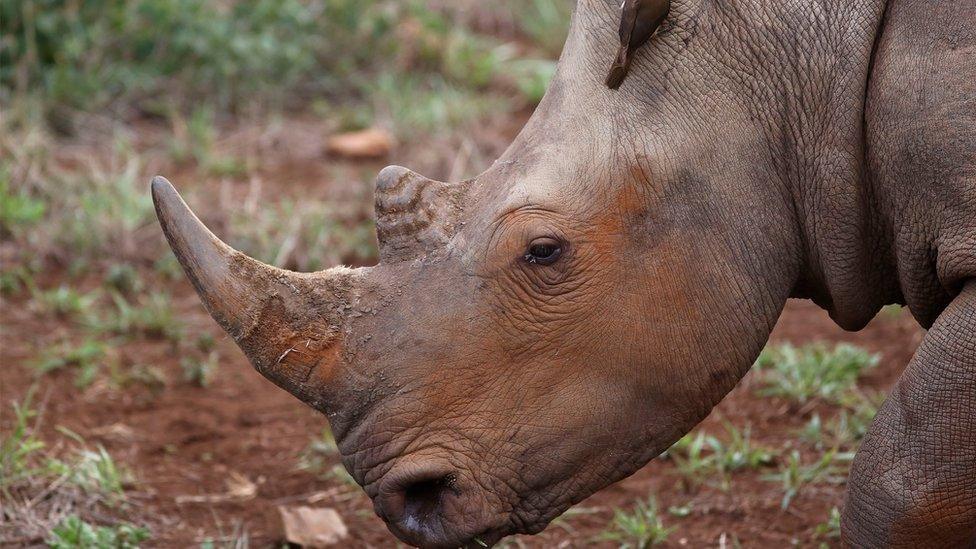
Rhino horns are believed to have medicinal properties by some people in Asian countries
The number of rhinos poached for their horns in South Africa fell last year for the first time since 2007, officials say.
There were 1,175 cases in 2015, compared to the record number of 1,215 in the previous year.
The decline was due to "increased policing and combat operations".
Poaching has been driven by demand for rhino horn in Asian countries for their purported medicinal properties.
Since 2007, when 13 rhinos were poached in the country, the number of animals killed has rocketed.
South Africa's Environmental Affairs Minister, Edna Molewa, hailed last year's fall, saying it was due to the government's anti-poaching policies.
The measures, she said, included increased inspections at airports and borders and the use of anti-poaching technology.
"Considering that this is despite escalating poaching pressure, and in the face of an increased and relentless rise of poaching activity into protected areas, this is very, very good news," she said.
"[But] the onslaught against our rhino has continued unabated."
Nomsa Maseko: "There are fears that the rhino could be extinct within 10 years"
Most cases (826) were at the Kruger National Park near the border with Mozambique, where between 8,400 to 9,300 white rhinos live, Ms Molewa said.
She said that 317 poachers had been arrested last year for offences related to rhino poaching. In 2014, there were 258 arrests.
South Africa has 80% of the world's rhino population but there are fears that they could be extinct within 10 years.
There is increasing demand in Asian countries where it is believed that the horns have healing properties, even though they are made mainly from keratin, the same material as fingernails.
The horn is sold in powdered form as a supposed cure for cancer and other diseases.
Poachers use a chainsaw to cut away the rhino's horns and often leave a drugged animal to bleed to death.

Rhino poaching in South Africa

Much of the poaching occurs in the Kruger National Park, which covers an area of about 20,000 sq km (7,500 sq miles)
Nationwide figures have increased from 13 poached rhinos in 2007 to a record 1,215 in 2014, before falling to 1,175 in 2015
Criminal syndicates are involved, selling horns on the black market in Asia
Rhino horns sells for $65,000 (£43,000) per kg - more than gold - a South African court heard last year
Rhino deaths could start overtaking births between 2016 and 2018
Sources: South African Department of Environmental Affairs, Save the Rhino
- Published31 December 2015
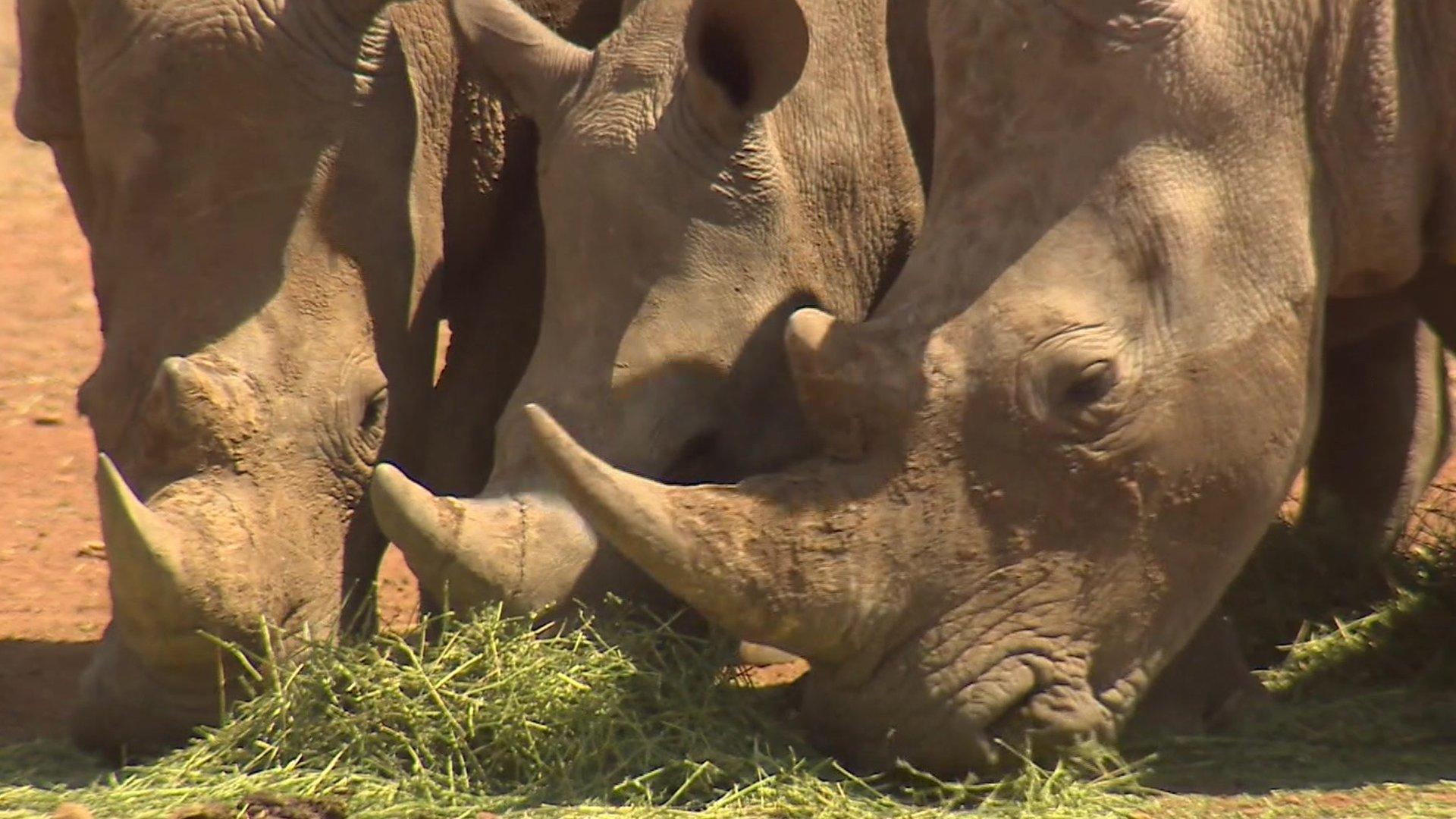
- Published20 July 2015
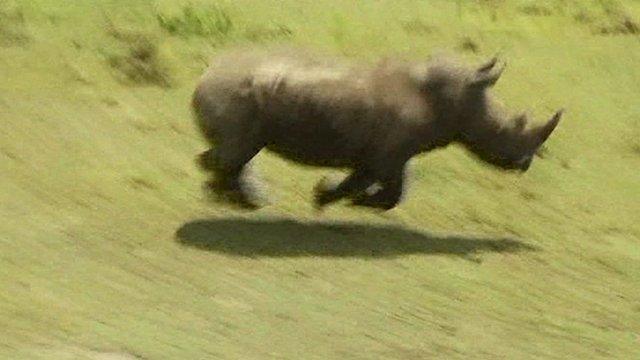
- Published30 October 2011
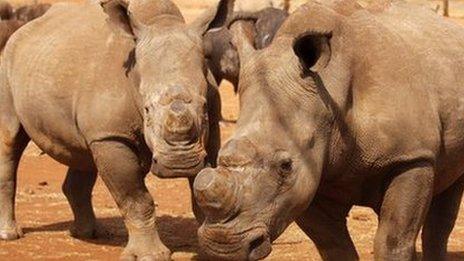
- Published21 July 2014
